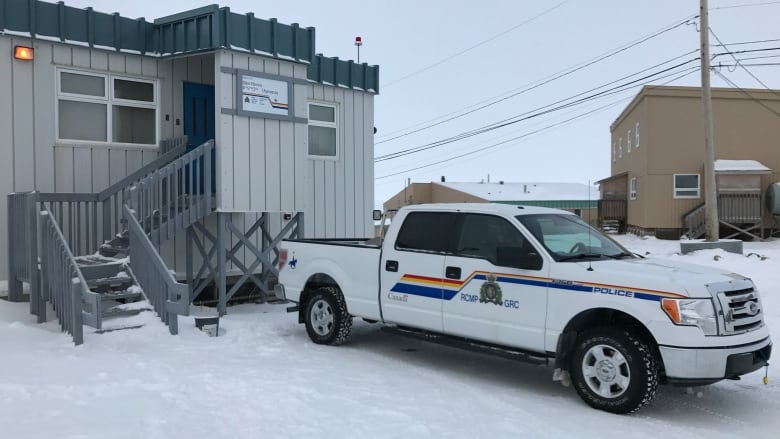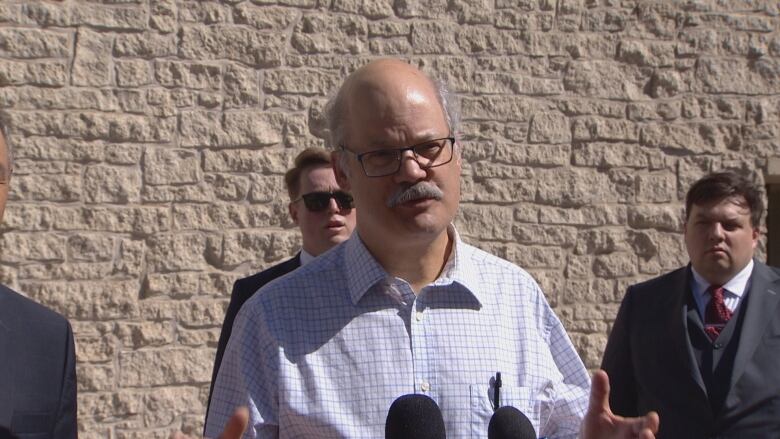'Completely toothless': Experts say Nunavut's police oversight less accountable than others
'Basically you have this kind of insider group where police get to protect their own interest,' says professor

Nunavut's police oversight model is more than 30 years behind the national trend and less accountable to its citizens than in other jurisdictions, some experts told CBC News.
Police investigating police, as happens in Nunavut, does not leave the public with a lot of confidence in police accountability, said Paul McKenna, an expert in police training and oversight. He hasmore than three decades of experience.
"I know human nature sufficiently to know that model doesn't work very well," McKenna told CBC News.
"When you're trying to render judgment or make your friends accountable, it's far easier to become a defender rather than an objective agent of account."
Recent allegations of systemic racism and mistreatment of Inuit women in Nunavut has brought the RCMP's accountability into the spotlight.
Because Nunavut is policed by the RCMP, the territory follows the Mounties' complaint process.
To file a complaint, a person can attend the local detachment or contact the Civilian Review and Complaints Commission for the RCMP (the CRCC). Either way, the local detachment investigates the complaint.
If the person is not happy with the results of that investigation, they can ask the commission to review the investigation. The CRCC reviews the investigation already done by police and then issues a report, which may include recommendations to the RCMP commissioner.
The commissioner may agree with and implement the recommendations, or not.
In a 2014 academic article, McKenna wrote that such civilian review bodies do not have much public confidence.
"Continued reliance on suspect police investigations and a lack of power to determine case outcomes has resulted in disappointing results and declining public confidence," McKenna wrote.
Civilian oversight in policing
When serious incidents occur, such as in-custody deaths, the RCMP bring in an outside police force to investigate. That outside force then presents a report to the RCMP, which may make amendments and edits before submitted to the Nunavut Justice Department.
Nunavut's Justice Department told CBC News in an email that it currently has agreements with the Ottawa and Calgary police forces to conduct such investigations.
The department "is looking into various civilian oversight models," Jessica Young, director of policy, wrote.
"The national trend in this area is civilian oversight...We are still in the process of this review."
But McKenna said civilian-led investigations have been a trend in police oversight in Canada since the 1980s. That's when Ontario citizens organized a grassroots movement in response to the police shooting of Lester Donaldson, a Black man shot by police in his home, along withthe Toronto bathhouse raids and other police brutality events, McKenna said.
The government brought in the Police Services Act of Ontario, "which began the slow process that led to race-relations awareness...use of force reporting requirements," and civilian-led investigations of police, McKenna said.
"Of course the police executives and the police union fought hard against these changes...because it stepped deeply into territory...that the police felt was their exclusive purview," McKenna said.
Ontario's Police Services Act also created police boards with citizen members that govern local police forces, he added.
"It gives that better anchor in the community and makes it a little more flexible. And that certainly makes it a little more accountable," McKenna said.
But that model isn't possible in jurisdictions where the RCMP police, because it is a federal organization run out of Ottawa, said McKenna.

Politics and policing need separation, Palmater says
Even the jurisdiction's justice minister has little say over policing because officers get their orders from RCMP headquarters, he added.
And the contracts between local jurisdictions and the RCMParere-negotiated within a limited scope, usually, every ten years, McKenna said.
The current contract between Nunavut and the RCMP isn't up for renegotiation until 2032.
"There's supposed to be a really profound separation between the political level and the operational level [of policing]. And it's really hard to see how that can be effective [in jurisdictions like Nunavut]," said McKenna.
That lack of separation between politics and policing can be seen throughout Canada, including on the federal level, Pam Palmater told CBC News.
Palmater is a Mi'kmaq professor and lawyer now based in Toronto.
She said a major issue for police accountability in every jurisdiction is the migration of former police executives toward government or private contracting hired by police or government.
That practice raises the same flaws as police investigating police, she added.
For example former police chief Bill Blair is now the Minister of Public Safety, which oversees the accountability of the RCMP, Palmater pointed out.
"So basically you have this kind of insider group where police get to protect their own interest," Palmater said. "None of that is going to change until we start separating this very improperly-close relationship...But police forces and unions hold a lot of power in society, a lot of money goes to them."
'No way for a police oversight body to act'
Back in Nunavut, the oversight provided by the civilian complaints commission is "completely toothless," Tom Engel told CBC News.
Engel is a criminal defence lawyer based in Edmonton who said he has filed many requests for review with the commission for the RCMP.

The commission can take so long to issue its report that Engel said he sometimes forgets in the meantime that he even asked for a review.
And then the most the commission usually does is issue non-binding recommendations for the commissioner for the RCMP, said Engel.
"The CRCC is toothless and they try to design their final reports to be palatable to the commissioner so the commissioner will agree," Engel said.
"It's a negotiation, they have to be diplomatic, which is no way for a police oversight body to act."












_(720p).jpg)


 OFFICIAL HD MUSIC VIDEO.jpg)
.jpg)



























































































